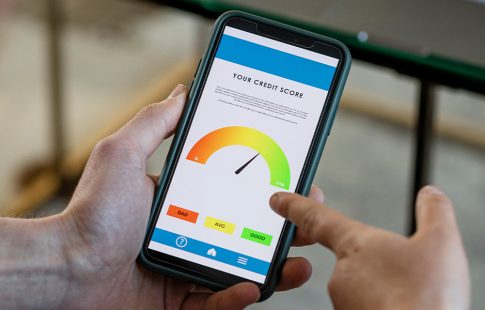The homebuying process can be overwhelming, and it can be confusing to know where to start. If you’re looking to buy a home, check out our step-by-step process below and download our 2025 Mr. Cooper Homebuying Guide to take on the go. We’ll walk you through the basics of buying a house from curiosity to moving day!
Quick Takeaways
- Step 1: Determine your readiness to buy a house
- Step 2: Calculate your budget and down payment
- Step 3: Choose the mortgage that is right for you
- Step 4: Get Pre-Approved or Verified Approved
- Step 5: Find a real estate agent you click with
- Step 6: Begin your house hunt
- Step 7: Make an offer on a house
- Step 8: Get a home appraisal, inspection, and gather all needed documents
- Step 9: Close on time
- Step 10: Move into your new home


Homebuyers: We’ll Knock 1% Off Your Rate for a Full Year!
Step 1: Determine your readiness to buy a house
Whether this is your first time buying a home or you are a seasoned buyer, buying a house is a big commitment. It’s important to review your financial health and personal readiness before starting the homebuying process. Consider you debt-to-income ratio, income, credit, funds for down payment and closing costs, and your personal readiness to be a homeowner.
Debt-to-income (DTI) ratio
Your debt-to-income (DTI) ratio is one qualifier used by some lenders to determine your ability to repay the mortgage via monthly payments. The ratio compares your combined monthly debt payments by your monthly gross income. For example, if you have a $1,800 monthly mortgage payment, a $500 monthly auto loan payment, and pay an additional $700 in student loan payments and other debt like credit cards, personal loans, your combined monthly debt payment would be $3,000 ($1,800 + $500 + $700). If your gross monthly income is $10,000 then your DTI ratio would be 30%.
To calculate it, divide your total debts by your monthly income, then multiply that answer by 100 to get a percentage. Using the example above, the calculation would look like this: ($3,000 ÷ $10,000) 100 = 30%
In the past a DTI of 43% or lower was a good target. Today, standards vary by lender. For example, some lenders use a “price based model” instead of DTI to judge a customer’s ability to repay. That model focuses on the loan’s price and if a buyer is likely to be able to pay it.
Income
To determine your monthly gross income used in your debt-to-income ratio, lenders require proof of income and employment. They usually like to see a reliable and stable work history of 2 years to back up your source of income. Proof of income can come from recent pay stubs, W-2s, income tax returns, proof of alimony, child support documents, or other income statements.
Credit
Your credit score is used by lenders to determine how much of a risk it would be to grant you a loan. Lenders also use your credit score to determine the interest rate you’ll pay on the mortgage. Credit scores that are higher reflect a better credit history, allowing you to obtain better interest rates. Your credit score is typically made up of the following factors:
- Your payment history
- Your current unpaid debt-to-credit limit
- Types of credit you’ve used
- Age of your credit history
- New credit applications
The credit score needed for mortgage approval differs from lender to lender and can vary depending on the type of mortgage you are getting. According to Experian, the minimum score usually required for a conventional loan is 620 (see more on conventional loans below). Boosting your credit score before starting the homebuying process can help increase your chance of qualifying for a mortgage and lowering your interest rate.
Funds for upfront costs
Even if you are financing the majority of your home purchase with a mortgage it is still important to have some liquid assets to fund parts of your purchase, such as the down payment and closing costs. How much cash you’ll need to buy your house can vary depending on many factors such as the purchase price and financing option.
Readiness to become a homeowner
Becoming a homeowner is a big commitment. Owning a home can come with many costs that renters do not have to worry about such as home maintenance and repairs, property taxes, homeowner’s association fees, and homeowners insurance. Determine if you are ready to switch from renting to owning by using a rent or buy calculator to determine if buying makes the most sense for your situation.
Step 2: Calculate your budget and down payment
After you have determined your readiness to buy a home, the next step in the homebuying process is calculating your budget and down payment. To calculate your budget, look at your mortgage-to-income ratio. This is the percentage of your annual gross income that will be devoted to paying your monthly mortgage payment. According to Investopedia, a good rule of thumb is that your mortgage-to-income ratio should not exceed 28% of your gross income. For example, if your gross monthly income is $10,000 your monthly mortgage payment should stay under $2,800 (28% of $10,000). If you are still having trouble coming up with your price range, try using Mr. Cooper’s Price Range Calculator to help you determine your budget.
Although most homebuyers believe that they need a 20% down payment to qualify for a loan, that is not always true. The down payment, or the large one-time payment made at closing, will determine how much equity you have in the home at the time of purchase. It will also mitigate the loss a lender might suffer if a customer defaults on the loan. Many lenders still recommend a 20% down payment to avoid additional costs such as private mortgage insurance (PMI), but you could put down as little as 0% depending on your loan type.
To learn more about down payments, how much you should put down, and saving tips, check out Mr. Cooper’s blog “What You Need To Know About Making a Down Payment on a House.”
Step 3: Choose the mortgage that is right for you
One of the most important steps to buying a house is choosing the best type of mortgage for you. There are many different types of loans including conventional, FHA, and VA loans. All loans fall into two categories: conforming and non-conforming. Conforming loans meet requirements set by Fannie Mae and Freddie Mac, and the government limits their maximum amount. In comparison, non-conforming loans’ standards can differ. These loans can have varying qualifications, costs, and benefits from lender to lender.
Conventional
Conventional loans are the most common type of mortgage. They refer to any home loan that isn’t guaranteed or insured by the federal government (in contrast to a FHA, USDA, or VA loan, for example). There are a variety of types of conventional loans but most are conforming loans because they are backed by Fannie Mae or Freddie Mac. Conventional loans allow for down payments as low as 3% and often offer better mortgage rates than their alternative non-conforming options.
FHA loans
FHA loans are non-conforming and are backed by the Federal Housing Administration. They offer customers flexible credit requirements and manageable down payments. Although mortgage insurance is required for FHA loans, they can be a great option for those that do not qualify for a conventional loan with down payment requirement of 3.5%.
VA loans
This is a great benefit for veterans, active-duty service members, and surviving spouse. VA loans can offer low rates and manageable down payments (sometimes as low as 0%). Another great benefit of this non-conforming loan type is that it does not require monthly mortgage insurance payments.
If you are still unsure of which loan is best for you, or which you will qualify for, reach out to a Mr. Cooper Mortgage Professional today! They can walk you through each loan type and help you determine which option is best for you.
Step 4: Get Pre-Approved or Verified Approved
To solidify your budget and your qualification for the loan type you chose, get Pre-Approved, or a Verified Approval for a mortgage. This step in the homebuying process provides you with a letter from your lender outlining how much you’re approved for based on your credit score, income, and assets. Wondering what’s the difference between a Pre-Approval and a Verified Approval?
Pre-Approval
A Pre-Approval letter includes a ballpark estimate from your lender of how much money you may qualify for. It typically involves a fast application process where you verbally provide your lender with an overview of your finances. This option is quick and easy but is not as accurate and can carry less weight than a Verified Approval letter when included with a home offer.
Verified Approval
A Verified Approval letter provides a more accurate estimate of what you may qualify for and holds more weight when included with an offer. Although the process can vary between them, this is because your lender will require physical documentation of your income and assets. They may also require you to agree to a hard credit pull.
Step 5: Find a real estate agent you click with
Your real estate agent is a key contributor to your homebuying process. They act as your representative, showing you properties, writing offer letters on your behalf, assisting in negotiations, and keeping your best interests at heart. It’s important to find a real estate agent you trust to give you sound advice when it comes to local market trends and how much you should offer on a house. Consider interviewing multiple agents in your area to find one that not only meets your needs but is someone you trust.
Finding the right real estate agent can be challenging. To help with this, some lenders may offer agent match programs to help connect you with trusted local agents.
With Mr. Cooper’s Close & Save1 program, you can search and choose your agent from some of the most trusted brands in real estate. Match with a local agent that best fits your needs!

Save Up to $10,000 & Get an A-List Agent
Save and simplify when you buy, sell, or both with Mr. Cooper Real Estate Services.1
Step 6: Begin your house hunt
Although your real estate agent will help you with this step in the homebuying process, you can conduct your own search as well. Start by putting together a list of your top priorities, or your wish list. Rank your priorities in order of importance so you know which ones can be negotiable. Some common house hunting priorities are:
- Square footage
- Number of bedrooms
- Number of bathrooms
- Price
- Home condition (move-in ready or fixer upper)
- Outdoor space
- Entertainment space
- Location (This could include school districts, neighborhood, parks, nearby entertainment, etc.)
- Other priorities
Share your list with your real estate agent so they have a better idea of what you are looking for. You can join the hunt yourself by using an online home search sites such as Mr. Cooper’s Street Smarts. Here you can use the filters to narrow down your search to match your wish list, save your favorite homes, and set alerts for new listings or changes to your saved homes.
Step 7: Make an offer on a house
When you’ve found a home that matches your wish list, it’s time to make an offer. To make a formal offer on a house, submit a real estate contract in writing. Here are common details to include in your offer:
- The home’s legal address
- The buyer’s and seller’s names
- Purchase price and terms
- Any earnest money included
- Requirement for clear title to the property
- Details regarding closing costs
- Details on which selling costs and fees the buyer or seller will be responsible for
- Offer expiration date
- List of fixtures and appliances that will be included in the sale
- Financing terms
- Estimated closing date
- Contingencies
Real estate law varies from state-to-state, so be sure to use an agreement that will be valid in yours and doesn’t omit critical information. If this step seems confusing, don’t worry. Real estate agents almost always write and submit the offer on your behalf. After submitting your offer, the seller can respond in one of three ways:
Accepted offer
Celebrate! Your offer was accepted and you can move on to the next step in the homebuying process.
Rejected offer
There are many reasons why your offer may have been rejected, but you still have a few options. You can choose to submit another offer with a few changes or continue your house hunt for another home.
Counteroffer
In this scenario, the seller wants to leave the door open on your offer. They may come back to you requesting a change in the purchase price or sale terms before accepting your offer. If you receive a counteroffer, you can either accept, reject, or negotiate a counteroffer of your own.
Step 8: Get a home appraisal, inspection, and gather all needed documents
When your offer is accepted it is time to move on to the next step in the homebuying process—securing financing and finalizing details of the sale. There are many steps to take between getting an accepted offer and closing on the property.
Home inspection
Although getting a home inspection is usually not required by your lender, having one is wise. It gives you a better sense of exactly what you’re buying. Home inspectors will go through the house and make sure everything is working properly and that there are no issues. They will test electrical and plumbing systems, check appliances, check for anything harmful such as lead paint or mold, and inspect other safety measures. The inspector will then give you a report detailing any issues with the home. This can include inspections of newly built homes, if permitted. Keep in mind, any home can potentially have problems regardless of its age.
Make sure to go over each issue in the inspector’s report carefully, review it with your real estate agent, and ask if they notice any red flags. If the home has serious problems, such as foundation issues, mold, or asbestos, negotiate with the seller to fix the problem before closing. You will become liable for any issues that are not fixed before closing on the home. This could be a very expensive mistake. It’s also why many buyers include an inspection contingency in their offers that allows them to exit their contract if the inspection comes back with issues. Additionally, if a problem is severe, future buyers may not be able to get a mortgage on your home unless the issue is fixed.
One additional safeguard may be to add a contingency saying the seller has to purchase a home warranty for you. These warranties can cover major home components such as HVAC systems and hot water heaters. They can also protect you if something wears out after you’ve purchased the home.
Home appraisal
A home appraisal is a professional review that determines the value of the property you are buying. Your lender will require you to get a home appraisal done as one of the conditions for loan approval. This gives your lender a limit on how much they can lend you to buy the home. They can’t lend more than what the home is actually worth.
If your home appraisal comes back lower than the purchase price, your lender will not cover the full amount. If this happens, you can ask the seller to come down on the price or you could be liable for coming up with the rest of the money. Many buyers include home appraisal contingencies for this reason. This will enable you as the buyer to cancel the purchase contract if the home appraisal comes back lower than the agreed selling price.
Mortgage documents
During this time your lender will require mortgage documents, such as the purchase contract and proof of income, before finalizing the loan. Having all the documents your lender requires ready to go ahead of time can help speed up the process and keep you organized. Which documents you need may vary depending on your financial situation as well as your lender. To get you started, here is a checklist of commonly required mortgage documents.
Step 9: Close on time
Closing can be one of the busiest steps in the homebuying process. It’s important to know what to expect so there are no surprises on signing day. Three business days before closing, your lender will provide you with your closing disclosure. This document summarizes details about your mortgage, such as the loan terms, monthly payment amounts, and the closing costs that you will pay to finalize the mortgage. Review your closing disclosure to make sure there are no mistakes or issues.
Bring a copy of your closing disclosure, your ID, and the closing cost funds when you attend your closing meeting. At the meeting you will sign a settlement statement listing all costs associated with the purchase of the home, a mortgage note promising to repay the loan, and pay the down payment and closing costs. You will also sign the deed of trust to the house which secures the mortgage note and makes you an official homeowner!
With Mr. Cooper’s Close On Time Guarantee, we’re putting our money where your house is. If we don’t close on time, we will reimburse you for your first month’s mortgage payment (principal + interest) is on us.2
Step 10: Move into your new home
It’s time to take possession and move into your new home! There can be a lot of work and expense that go into this step in the homebuying process. There are many ways you can reduce moving costs to help make this step a bit easier on your budget.
- Schedule your movers during low demand times
- Collect free boxes and supplies
- Get rid of items you don’t need
- Use existing items as packing supplies, such as blankets and towels
- Search for free or discount moving programs
Are you ready to start the homebuying process? Call 833-702-2511 or get started online to learn more about your options with Mr. Cooper!
Tradenames and trademarks used in this blog post are the property of their respective owners. Nationstar Mortgage LLC d/b/a Mr. Cooper is not affiliated, associated, or sponsored by any of these owners. Use of these names and trademarks is not intended to and does not imply endorsement, but is for identification purposes only. Information provided does not necessarily represent the views of Mr. Cooper. Information is subject to change without notice.
1. Mr. Cooper® Close and Save
Rebate disclosure: to obtain the Mr. Cooper Close & Save rebate, customers must list and sell their property using a real estate agent referred by Mr. Cooper Real Estate Services, a licensed real estate brokerage, and an independent referral real estate brokerage. After closing, the referral brokerage will issue the rebate. Rebate is .5% of the sale price. For example, for a $250,000 sale, a customer would receive a rebate of $1,250 from the referral brokerage. Ask referral brokerage for details. Rebate not available in Alaska or Oklahoma. Rebate not available for employer-sponsored relocations or transactions in Iowa or outside the U.S. In Kansas and Tennessee, consumers will be issued gift card. In Mississippi, New Jersey, and Oregon, a commission reduction may be available at closing. Rebate not available in certain transactions with restricted agent commissions (including many new construction, For Sale by Owner, or For Sale by iBuyer transactions). The referred agent can identify transactions where the rebate is not available. Customers retain the right to negotiate their individual listing agreement. Additional restrictions/conditions may apply. Offer subject to change or cancellation without notice.
Lender Credit disclosure: to obtain the Close & Save lender credit, customers must purchase a new home using an agent referred by Mr. Cooper Real Estate Services and obtain a purchase loan from Mr. Cooper. Qualifying customers will receive a lender paid credit that is 0.5% of their loan amount. For example, on a home loan of $250,000, a customer would receive a lender credit of $1,250 toward closing costs. Offer does not apply to new loans submitted through a mortgage broker or on nonagency jumbo loans, non-QM loans, second lien products or team member loans. Offer may not be redeemed for cash and is nontransferable. Offer cannot be retroactively applied to loans where the rate has been locked. Additional restrictions/conditions may apply. Offer subject to change or cancellation without notice. This is not a commitment to lend and is contingent on qualification per full underwriting guidelines.
All agents have been independently vetted to meet performance expectations required to participate in the Mr. Cooper Real Estate Services network. You are not required to use a real estate agent referred from Mr. Cooper Real Estate Services as a condition of receiving a loan from Mr. Cooper, and you are not required to obtain a loan from Mr. Cooper to use an agent referred by Mr. Cooper Real Estate Services.
This is an advertisement and not a solicitation for agent representation if your property is currently listed with an agent. HomeSelect Settlement Solutions LLC dba Mr. Cooper Real Estate Services is a Mr. Cooper affiliate. 8950 Cypress Waters Blvd., Dallas, TX 75019. Licensed Texas Broker, license # 588848; Principal Broker Kevin Alaimo. Referrals to Mr. Cooper Real Estate Services may provide a financial benefit to Mr. Cooper. Anywhere Leads Inc.,175 Park Avenue, Madison, NJ 07940. Licensed broker in the state of Texas. Broker license #9009191; Clever Real Estate, 6358 Delmar Boulevard, Suite 300, University City, MO 63130. Licensed Texas Broker. Broker license #9010415; Jason Mitchell Real Estate LLC, 1000 Texan Trail, Suite 150, Grapevine, TX 76051. Licensed Texas Broker, Broker license # 728806; Vylla Home, 7600 Chevy Chase Rd., Suite 3, Austin, TX 78752. Licensed Texas broker, Broker License # 597813.
TREC: Consumer protection notice
https://www.trec.texas.gov/sites/default/files/pdf-forms/CN%201-5_0.pdf
Nationstar Mortgage LLC dba Mr. Cooper and HomeSelect Settlement Solutions LLC dba Mr. Cooper Real Estate Services are affiliates and separate legal entities.
2. Mr. Cooper® Close On Time Guarantee Terms and Conditions
The Mr. Cooper® Close On Time Guarantee offers assurance to customers purchasing a home with a Mr. Cooper home loan that the loan will close on or before the contract closing date, or the customer will receive a check equal to their first month’s principal and interest payment (“Guarantee Payment”). The customer is still responsible for making all scheduled loan payments according to the loan documents. For NY customers, this may be subject to attorney availability and requires Mr. Cooper approval.
Eligibility: To be eligible for the Mr. Cooper® Close On Time Guarantee,
(1) the customer must:
(a) submit a complete application for a purchase money home loan product directly to Mr. Cooper;
(b) provide a fully-executed purchase contract which must include all pages, addendums, and required signatures;
(c) provide all requested supporting documentation (including income/asset verification documents) needed to make a loan decision and signed initial loan disclosures within 24 hours of submitting the home loan application or within 24 hours of request. All required documents must be submitted electronically using Mr. Cooper’s online portal, Loan Tracker; and
(d) remain responsive with any further requests from Mr. Cooper and third party providers (such as appraisers and inspectors) in connection with the processing and underwriting of the home loan by providing any required documentation, access to property, or other response within 24 hours of request; and
(2) The loan application must be for a first lien, conventional, VA, or FHA mortgage loan product. This offer does not apply to non-conventional, or non-QM loan products.
(3) All required appraisals and an acceptable home inspection must be received 10 days before the Guaranteed Closing Date. Title work must be completed 5 days before the Guaranteed Closing Date. Sufficient funds to close must be verified 5 business days before the Guaranteed Closing Date. All required approvals from third parties (e.g. HOA, Condo certifications, etc.) must be received 5 days prior to the Guaranteed Closing Date. If home purchase is dependent on sale of home, proceeds from home sale must be received same day or before the Guaranteed Closing Date. For home loans to be secured by new construction, Mr. Cooper must receive a completed Final Inspection and/or certificate of occupancy at least 72 hours prior to the Guaranteed Closing Date.
Guaranteed Closing Date: The purchase contract closing date (“Guaranteed Closing Date”) must be at least 21 days for conventional loans and 30 days for VA and FHA loans after the date that the customer submits the complete mortgage application, purchase agreement, and all requested initial supporting documentation (including income/asset verification documents) to Mr. Cooper’s Loan Tracker portal. If the loan does not close on or before the Guaranteed Closing Date (subject to these terms and conditions), the customer will receive the Guarantee Payment in the form of a check following the home loan closing. The customer is responsible for any tax liability related to participating in the program and should consult a tax advisor if there are any questions about their personal tax situation.
Important Restrictions: The Mr. Cooper® Close On Time Guarantee will not apply if: (1) an existing loan application has been submitted by borrower involving same subject property address as of May 19, 2019 (2) changes are made to the original closing date as documented in the purchase agreement; (3) changes are requested to the loan amount, product, or terms requested within 10 days of the Guaranteed Closing Date; (4) there are changes to borrower’s income, employment, or debt from time of application to closing; (5) closing date extensions are due to a delay in completion of new construction, improvements, or property repairs; (6) either borrower or seller fails to meet purchase contract terms and requirements including seller-related delays, (7) home loan transaction involves a Co-op, CEMAs, or requires two or more appraisals, and/or (8) delay in closing is due to force majeure events including weather, or natural disaster.
Mr. Cooper reserves the right to amend, terminate, or withdraw the Mr. Cooper® Close On Time Guarantee at any time without prior notice.






